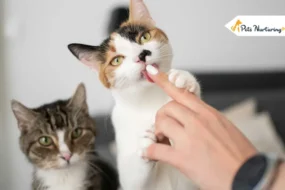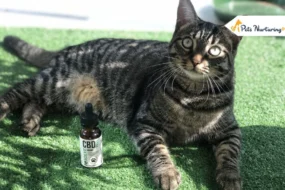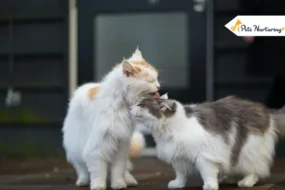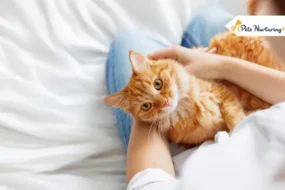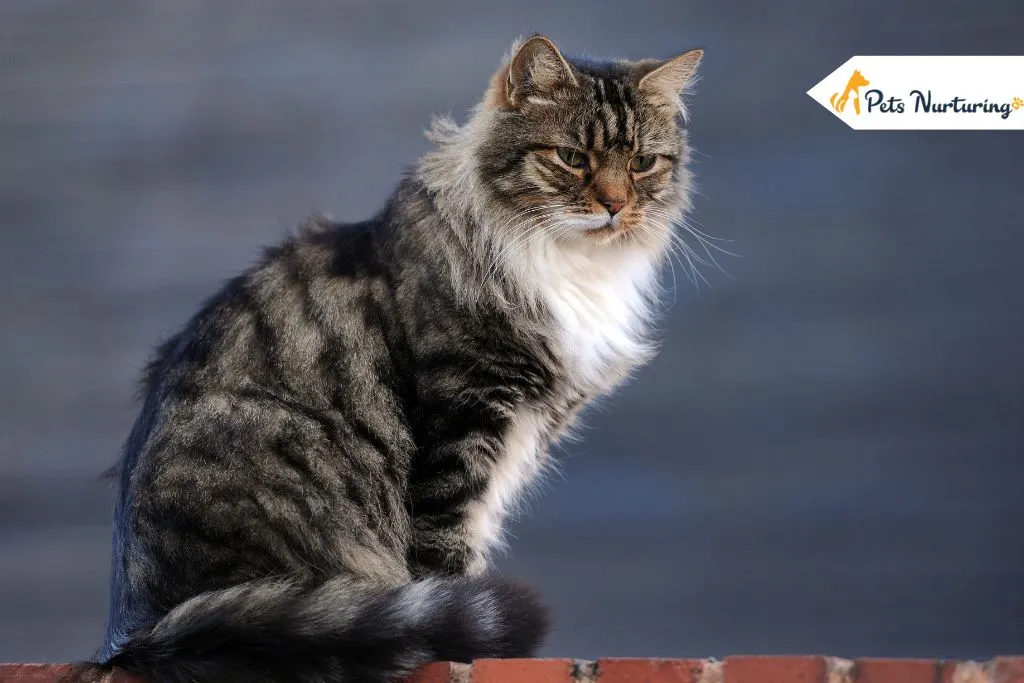
One of the best things in the world is the company of your cat. These felines will steal your heart with their cute expressions.
If you have a cat or are planning to get one, a question might often pop up in your head – how long do cats live?
The life expectancy of a cat depends on many different factors, like habitat, lifestyle, health, etc.
If you want to know more about the lifespan of cats? Keep reading.
In this blog, we are going to discuss the lifespan of cats and what you can do to improve it.
What Is the Average Lifespan of a Cat?

The average cat lifespan can be anywhere between 9 and 17 years. However, there can be exceptions where a cat can even live longer. In fact, there are many instances where cats have lived for around 20 years.
Did you know there was a cat named Creme Puff who lived for 38 years? This shows that cats have the potential to live longer. Here are some common factors that affect cat life expectancy:
- Breed
- Healthcare
- Diet
- Lifestyle
- Spaying and Neutering
- Genetics
Lifespan of Indoor and Outdoor Cats
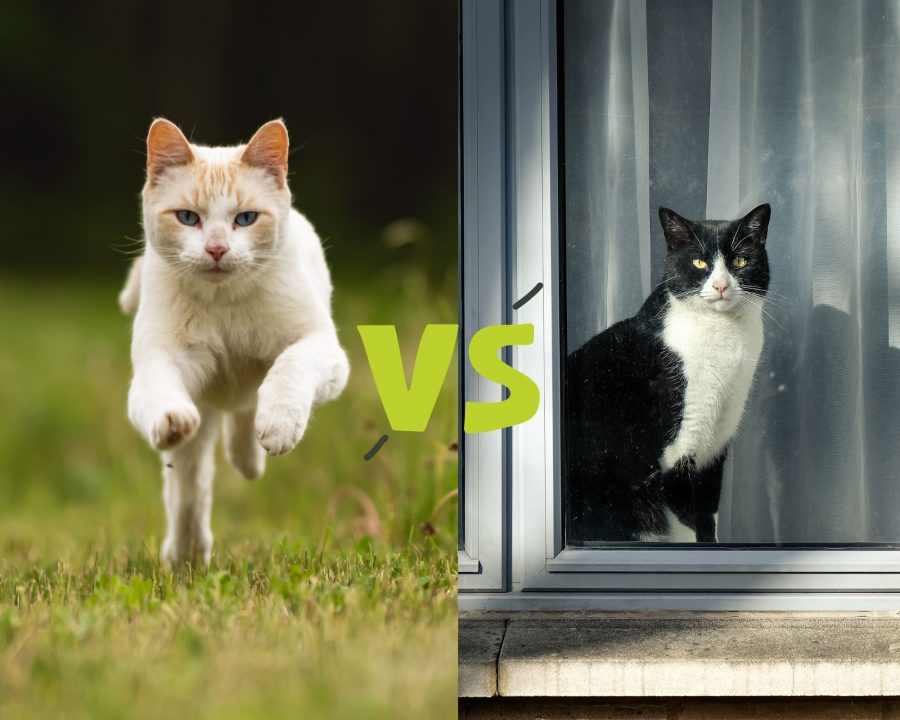
Many factors affect the life expectancy of a cat, but out of all the factors, the most important one is whether the cat lives indoors or outdoors.
Indoor Cats
How long do cats live indoors? 10 to 15 years
Indoor cats are those who live inside the home. Generally speaking, they live longer than outdoor cats. This is mostly because indoor cats are protected from a variety of hazards, including illnesses, mishaps, conflicts with other animals, and bad weather.
Additionally, indoor cats typically receive plenty of love, a decent diet, and frequent veterinary care, all of which contribute to their longer lifespan. Indoor cats often live between ten and fifteen years.
Outdoor Cats
How long do cats live outdoors? 2 to 5 years
Cats that live outdoors in the wild are known as outdoor cats. The lives of these cats are the shortest. On average, they only live for about two to five years. They don’t have a safe place to stay, and nobody looks after them by giving them food or taking them to the doctor.
Plus, they have to deal with many dangers like cars, dogs, toxins, bad weather, unkind people, illnesses, and other animals who want to hunt them.
Indoor/ Outdoor Cats
How long do cats live indoors/outdoors? 5 to 10 years
Indoor/outdoor cats are cats that live in both indoor and outdoor environments. These cats often live longer than outdoor cats, but not as long as cats that stay inside.
While not as frequently, these cats do face some of the same threats as cats that live outside. The amount of time these cats spend outside determines how long they live.
Life Stages of Cats
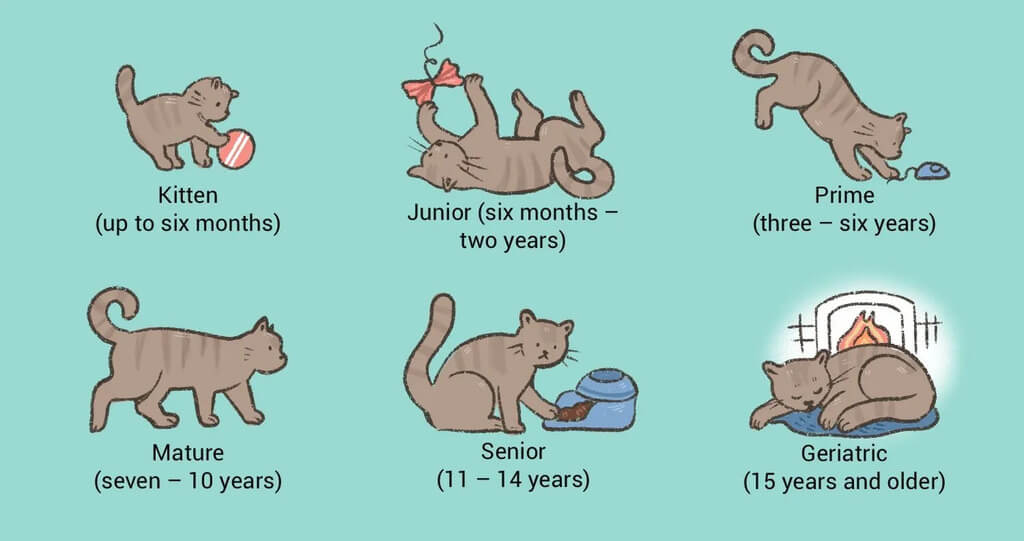
As they age, cats go through six distinct periods throughout their life. The phases of a cat’s life are as follows:
1. Kitten – Up to 6 Months
Cats are like human newborns at this time. They grow swiftly and are cute like cotton balls. It’s a critical period for socialization, during which they should interact with other pets.
During this period, they develop really quickly. Therefore, it’s a good idea to spay or neuter them to avoid unwanted litter. At this point, kittens stop consuming their mother’s milk and start eating solid food.
2. Junior – 7 Months to 2 Years
During this stage, cats are considered young adults. They become physically mature and fully grow at this stage. As junior cats are very playful, remember to invest in toys and avoid playing with your hands. This can result in destructive behavior when they grow old.
You should keep giving them age- and balance-appropriate cat food during this phase. In order to avoid obesity, be sure to keep an eye on their weight.
3. Prime – 3 to 6 Years
A cat is at its healthiest and most active during this phase of life. They are at peak adulthood, and immunizations are crucial to keeping them healthy.
During this phase, routine veterinary examinations are essential to track general health and treat any new problems.
4. Mature – 7 to 10 Years
This era of a cat’s life is comparable to middle-aged humans in their forties to fifties. They can begin to put on weight and slow down. Aging-related symptoms like graying fur and weakened muscles become apparent.
Cats frequently grow less energetic and might like a calmer setting. Some felines may have behavioral changes as they age. Regular checkups throughout this phase should involve testing for age-related diseases like arthritis and dental problems.
5. Senior – 11 to 14 Years
Elderly cats are similar to people in their seventies. To remain content and engaged, they might require further mental stimulation and enrichment. Using food puzzles and creating an environment that is exciting can help keep children interested.
More regular veterinarian visits are required for older cats in order to check health, treat chronic illnesses, and if needed, offer pain relief.
6. Geriatric – 15 Years and Older
While some cats may thrive at this point, others might choose a more solitary existence. Accelerated physical deterioration, such as diminished hearing, vision, and mobility, is common in super senior cats.
These cats may require more care and attention as they become sedentary. It’s critical to keep an eye out for any behavioral changes, such as increased vocalization or altered toilet habits. At this age, routine veterinary examinations become even more important.
What Happens As A Cat Ages?
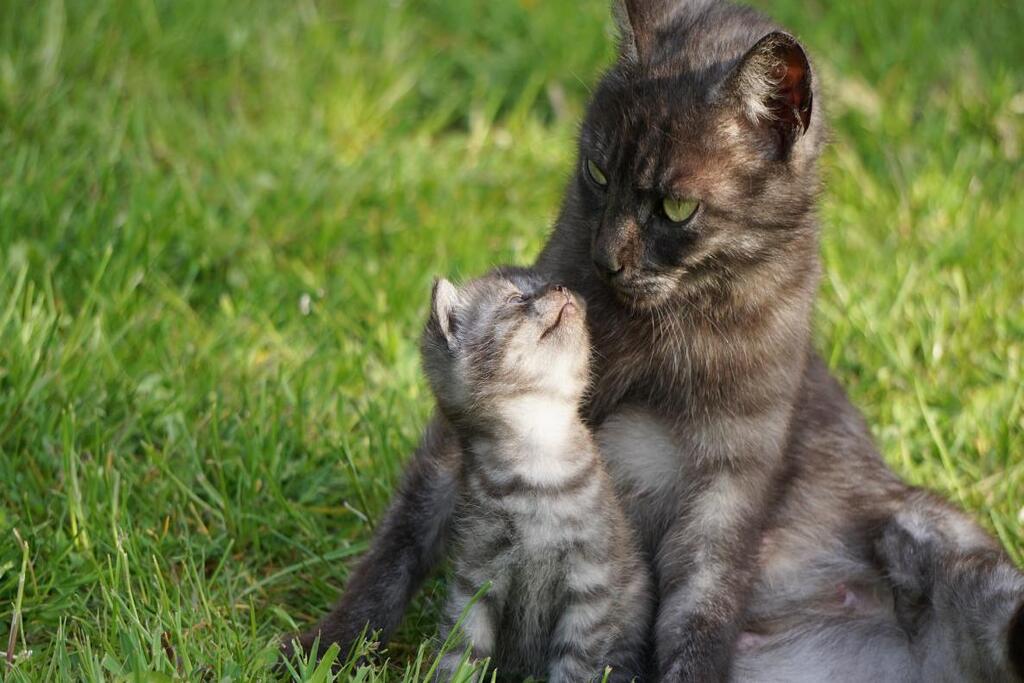
A cat goes through a number of physical and behavioral changes as it ages. Here are some common signs of aging in cats:
1. Changes In Coat and Fur
The original hues of your cat’s coat may fade, and gray, silver, or white hairs may start to show in their fur. Also, natural causes, decreased self-grooming, or trouble absorbing nutrients could all contribute to your cat’s fur being thinner.
2. Behavioral Changes
It’s possible for your elderly cat to behave strangely. A formerly amiable cat, for instance, could start acting agitated or even hostile. When there are other pets or noises, they could become easily irritated and less tolerant. Certain elderly cats develop increased anxiety, which can result in agitation or moodiness.
3. Decline In Cognitive Function
Similar to dementia in people, memory and cognitive issues can arise in cats as they age. It is known as the Syndrome of Cognitive Dysfunction (CDS). Experiencing disorientation, amnesia, or confusion are indicators of CDS. They may appear less energetic and less receptive to their environment.
4. Reduced Energy Levels
Cats that are older might have less energy and may not play as much as they formerly did. They could favor naps over active play. They may appear to spend less time outside, play less, shy away from hugs and kisses, slumber more, and exhibit less reactivity to their environment.
5. Eye Problems
Cats who are nine years old or older may experience visual impairments, which may indicate additional health problems. Among the common issues with the eyes include glaucoma, uveitis, cataracts, and cloudiness of the eyes. Signs may include pawing at the eyes, excessive blinking, cloudiness, or other changes to the eyes.
6. Dental Issues
Dental conditions such as gingivitis, periodontal disease, and tooth resorption are common in older cats. However, their teeth can remain healthy with regular dental treatment, which includes cleanings by professionals.
7. Weight Loss or Gain
Due to their decreased activity, some elderly cats require fewer calories. If you want to keep them from gaining weight, you may need to modify what they eat. Some cats may experience difficulty eating or lose their appetite as a result of dental difficulties or other health conditions.
8. Skin Problems
As your cat gets older, its skin may get drier and less elastic. It may also be more vulnerable to strange smells or infections.
How to Improve the Life Expectancy of Cats?
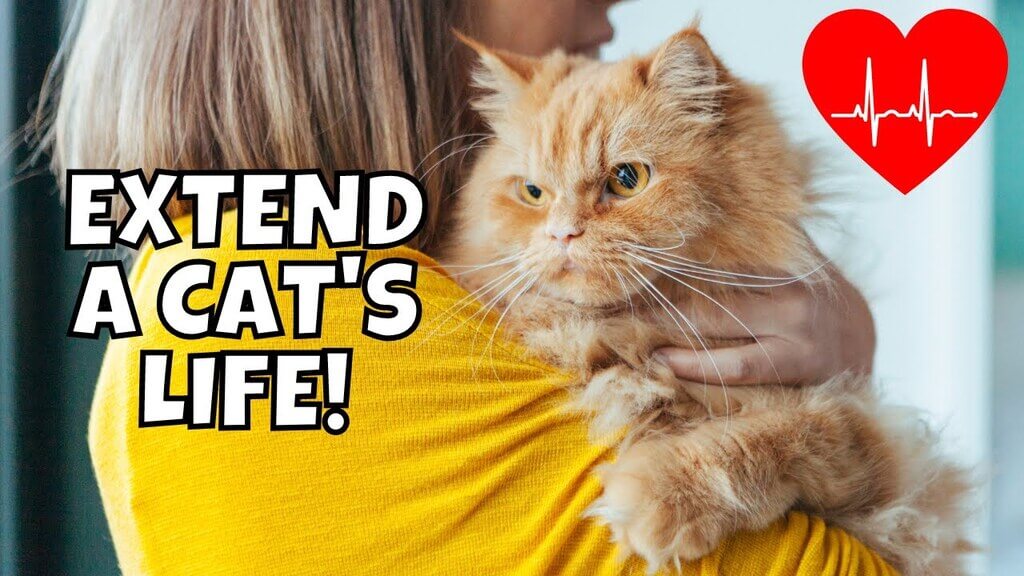
We all wish our cats could live forever, but sadly, that’s not possible. However, there are things you can do to give your cat a longer and healthier life.
1. Get Your Cat Vaccinated
Ensure your feline receives the appropriate vaccinations. They contribute to the defense against illnesses that may be extremely challenging or impossible to treat. Immunizations are required for indoor cats as well.
2. Go to Regular Checkups
Cats are experts at hiding when they’re not feeling well. So, take your cat for a checkup with the vet every year. Blood tests during these visits can catch problems early.
3. Watch Their Weight
Obesity can lead to serious health problems in cats, like arthritis and diabetes. Feed your cat a balanced diet that’s right for their age. Measure their food if you have multiple cats. This way, you can adjust their portions to match their metabolism.
4. Neuter Your Cat
One way to extend the life of your cat is to neuter them. It keeps illnesses closer to home and stops them from procreating, which lowers the likelihood of mishaps and altercations.
5. Keep Them Active
Play with your cat for a while every day, whether they are indoors or outside. It keeps them healthy and happy.
6. Give Them Nutritious Food
Give your cat a healthy food that is appropriate for their life stage. Cut back on cat treats to prevent overindulgence in calories and weight gain.
7. Keep Them Indoors At Night
At night, keep your cat inside. It is safer for cats to stay indoors at night because there is a higher chance of mishaps and fights with other cats after dark.
FAQs
A cat’s lifespan can range from nine to seventeen years.
A cat kept indoors may live anywhere from 10 to 15 years, depending on lifestyle, health, and genetics.
There are numerous examples of domestic cats living up to 20 years. Thus, it is possible for cats to live to 20 years.
Your cat becomes a senior beyond the age of ten, and they may require more care.
Cats can survive one or two weeks without food.
Conclusion
That’s all there is to know about a cat’s life expectancy. We all want our cats to live with us forever since they make such wonderful companions. Even if they might not have nine lives and might not live forever, cats can nonetheless provide wonderful memories for you.
Now, you can easily respond to someone who asks you, “How long do cats live?” This guide’s contents will also teach you how to take better care of your cat and extend their life with the right attention and care.
Explore Further:-








